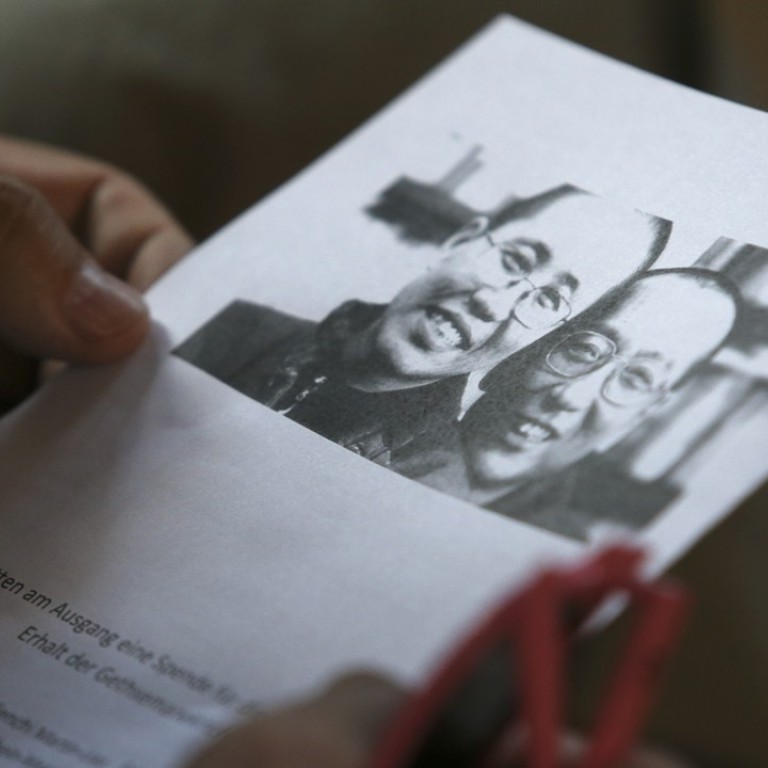
Liu Xia misses memorial service for husband Liu Xiaobo in Berlin
Exiled Chinese dissidents and German human rights activists pack church for service to remember Nobel Peace Prize winner who died in custody last year
The public memorial service in Berlin to mark the first anniversary of the death of Liu Xiaobo, the Chinese Nobel Peace Prize winner who died in custody, was not attended by his widow Liu Xia.
Friends said she was unable to attend owing to fears for her health and concerns about her younger brother Liu Hui, who remains in China. She was said to have remembered her husband alone yesterday.
For hours on Friday evening, the quiet Gethsemane Church in Berlin became the focal point for an massive international media corps waiting for a sighting of Liu Xia, who was allowed to leave China earlier this year after eight years under de facto house arrest.
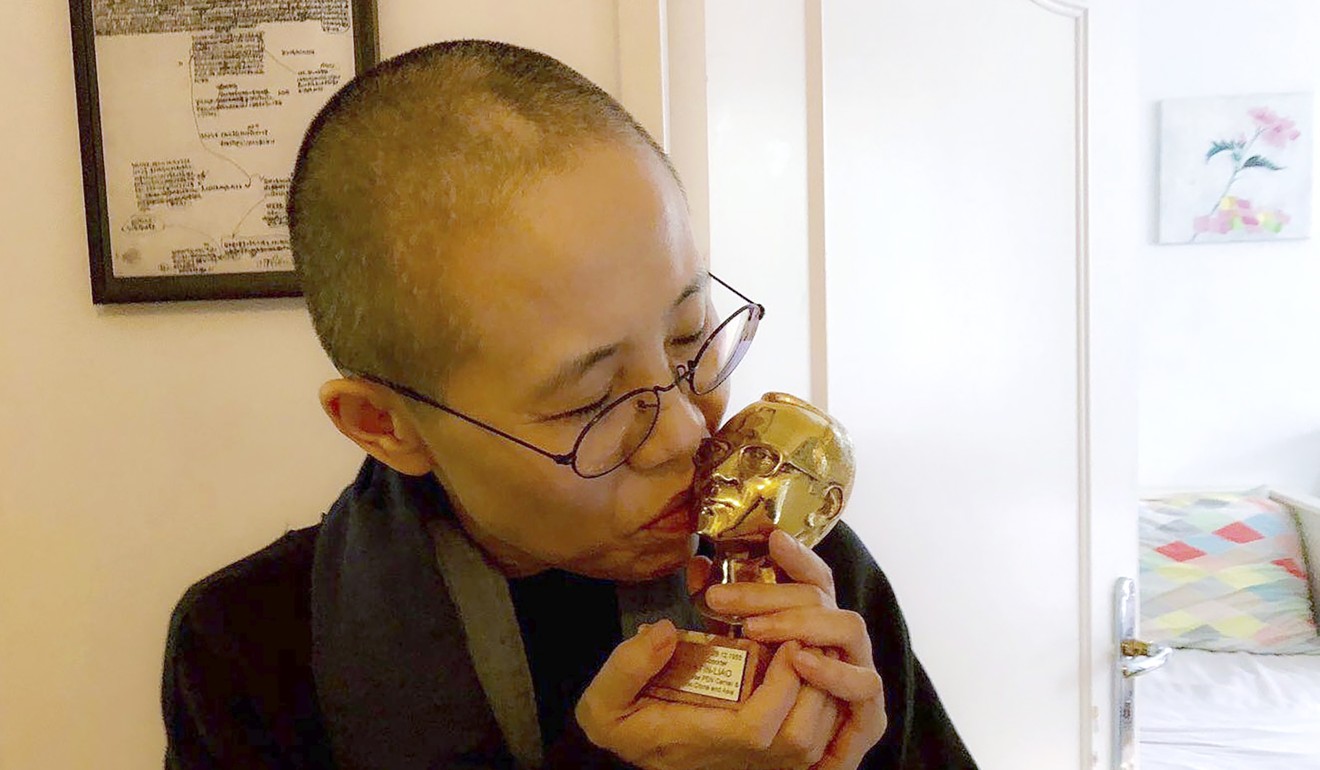
Hundreds of influential German figures including Nobel Literature laureate Herta Müller and former German president Joachim Gauck, members of the exiled Chinese dissident community and supporters of Liu Xia and her late husband packed the church – which once provided a refuge for East German dissidents – as the memorial service began at 6pm local time.
The service had been organised by German pastor Roland Kühne, long associated with human rights causes, and Tienchi Martin-Liao, president of the Independent Chinese PEN Centre.
It began opened with a performance by the 82-year-old songwriter Wolf Biermann, a former East German dissident who helped exchange letters between Liao and German Chancellor Angela Merkel pressing for Liu Xiaobo and Liu Xia’s freedom.
“It’s my job to do this. I’m a singer and poet. If I don’t help people fighting for their freedom, the muses of music will not kiss me and I will not be able to write a good poem,” Biermann told reporters before the service began.
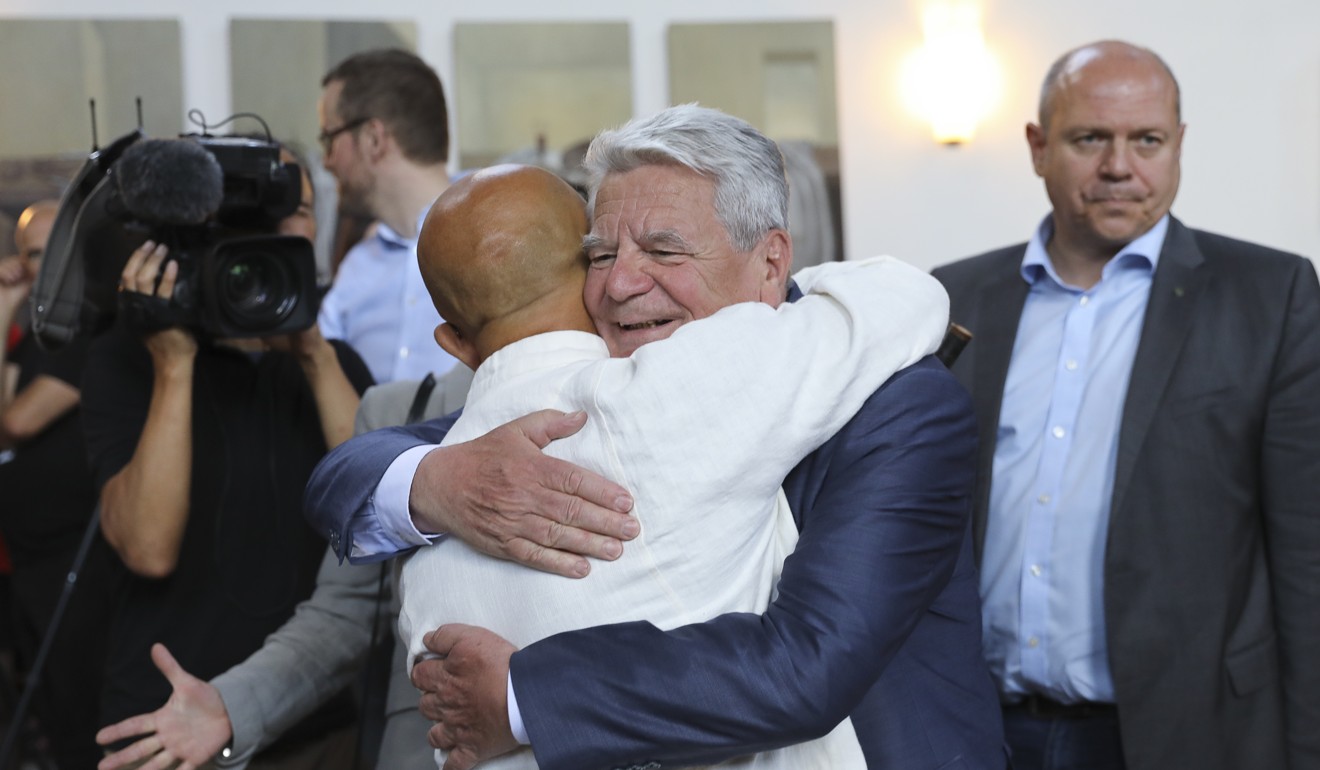
Müller, the 2009 Nobel Literature Prize laureate and another key figure in the campaign to free the couple, read a German translation of some of Liu Xia’s poems.
She told reporters that she became fully dedicated to human rights after living through Communism in Romania, where some her friends and colleagues were persecuted and killed.
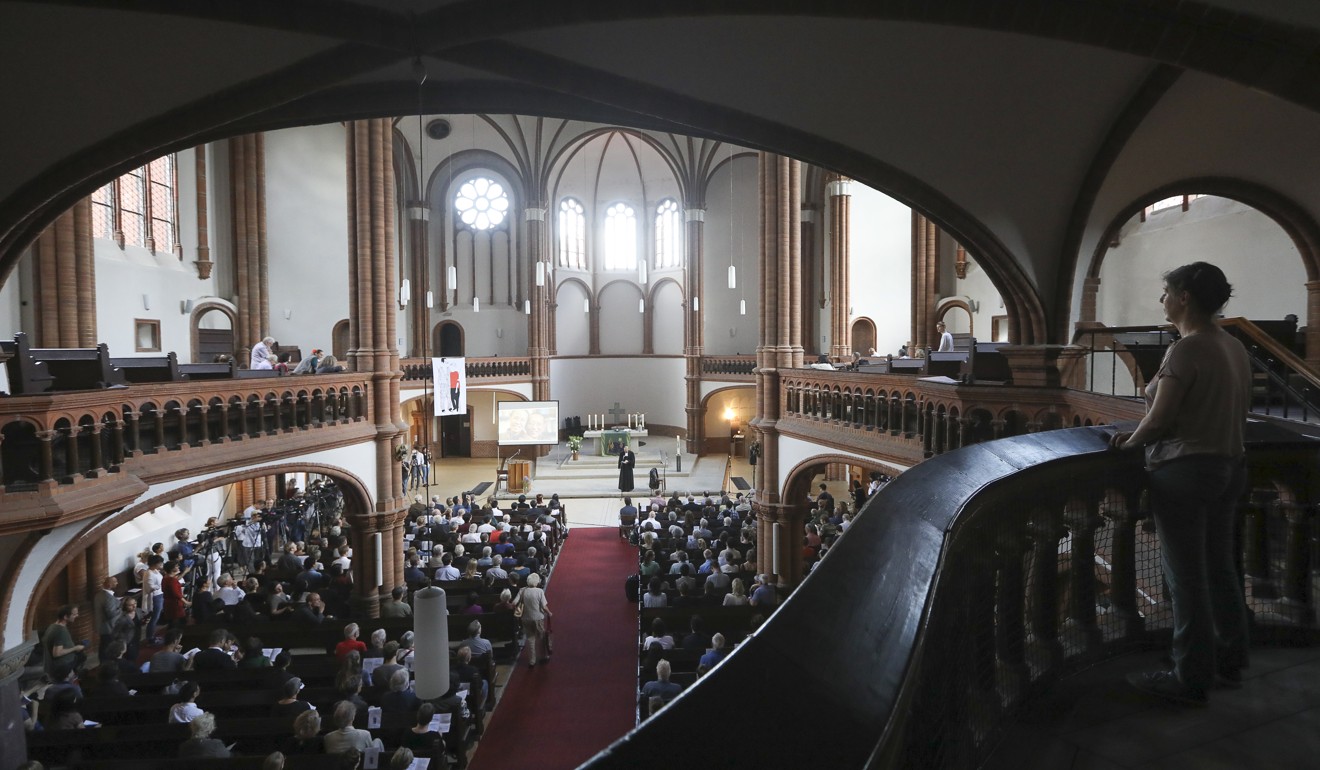
She also called for the release of other Chinese dissidents, adding: “I wish the Chinese government could see this. Dissidents are not a threat or disgusting thing to a society or authority, but a powerful force [for good]. This is a truth that requires no proof.”
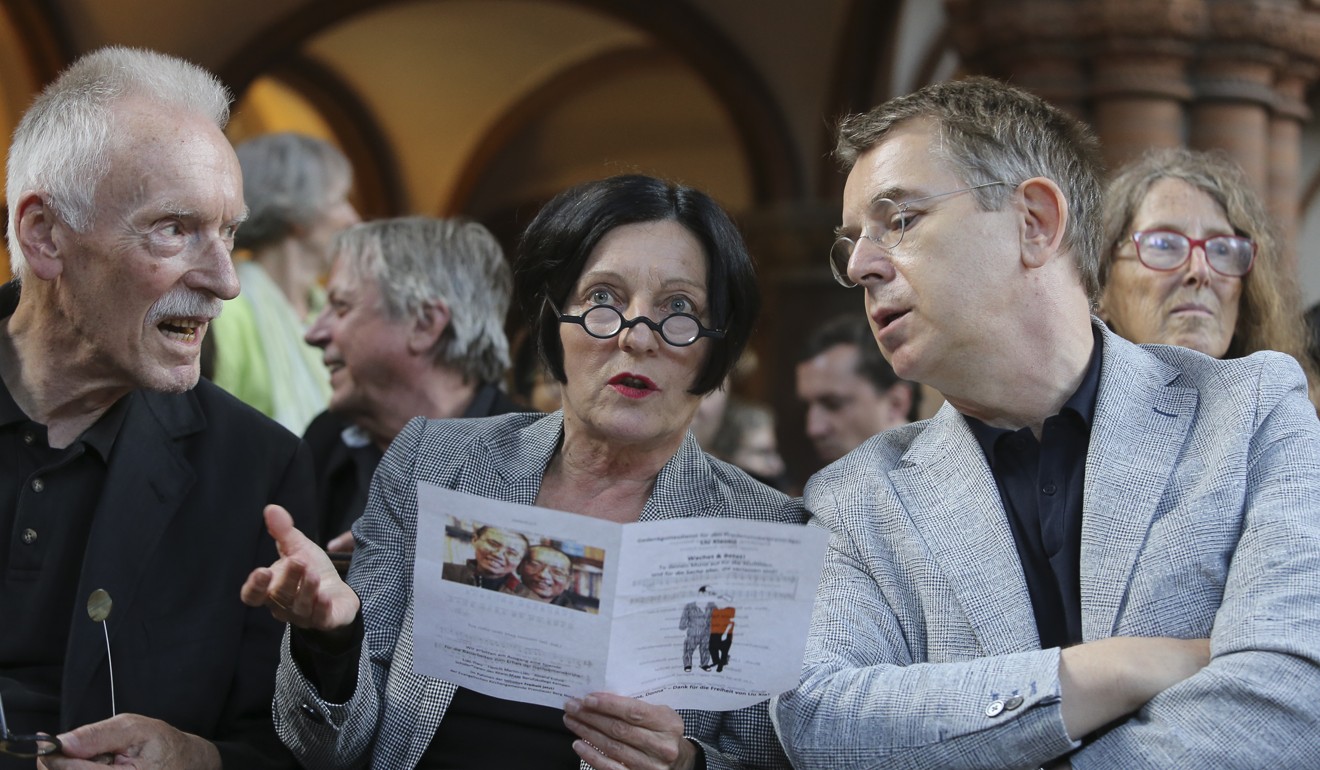
Meanwhile, Liao Yiwu, a close friend of Liu Xia and author and flautist, performed a new work titled Liu Xiaobo’s Last Moments with the violinist Lukas Voigtschild.
Liao said the work had been inspired during a telephone conversation between him and Liu Xia last August in which she recalled the last moment of her late husband.
City remembers Liu Xiaobo as China takes his supporters ‘on holiday’
Liu Xiaobo was diagnosed with terminal liver cancer last year but was not allowed to leave China and died in custody instead at the age of 61.
Liu Xiaobo was the first Nobel Peace Prize winner to die in custody since the German pacifist Carl von Ossietzky, who had been detained by the Nazis, in 1938.
His body was hastily cremated and the ashes were buried in the sea off the northeastern city of Dalian two days after his death.
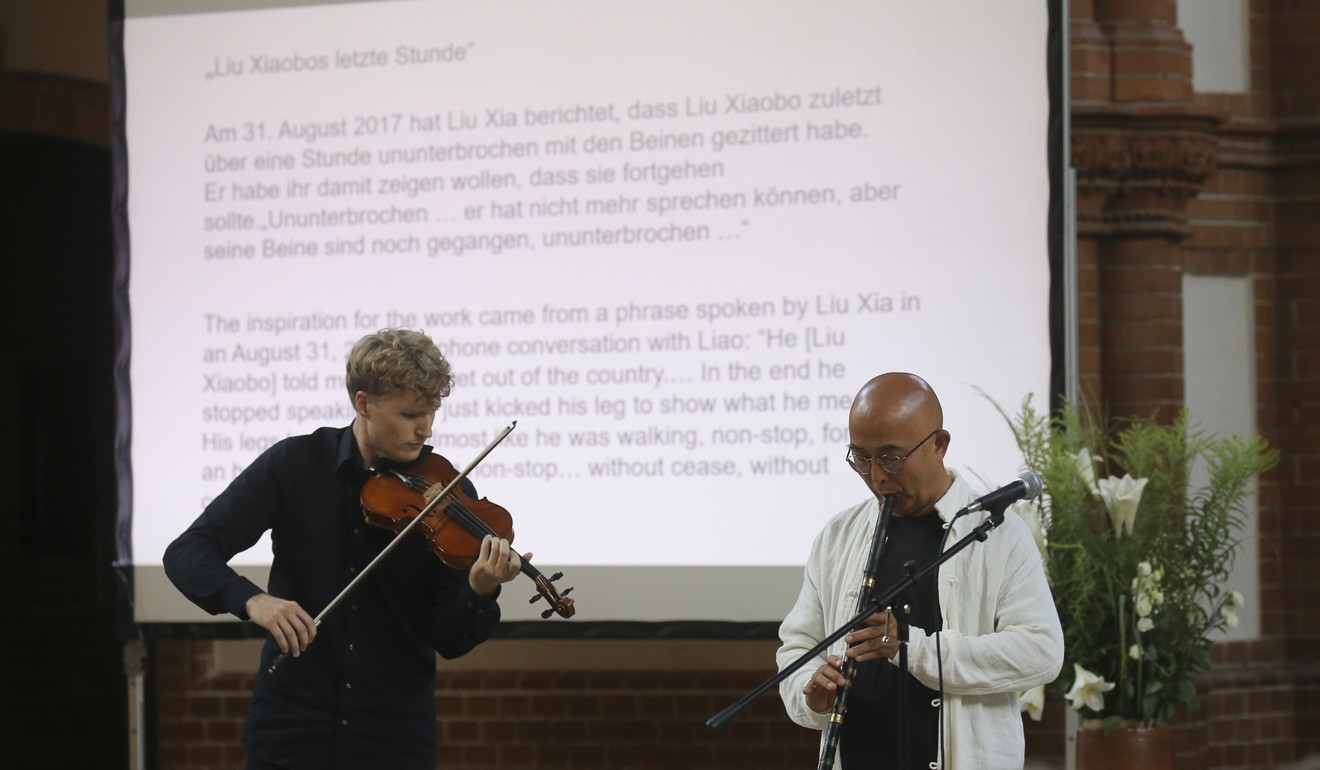
Jan Wong, a Canadian professor and former journalist who interviewed Liu Xiaobo in 1989 during the Tiananmen Square protests, attended the Friday service saying she had happened to be in Berlin for a family holiday.
Recalling her 1989 meeting with Liu Xiaobo, she said: “He was just sitting in the square helping the students. The most important thing he did was to persuade the students to leave on June 3 [the day before the killing started], he realised there was not much that could be done.”
‘West pressured’ Chinese dissident not to release Liu Xia tapes
Other members of the public who attended the service included the 25-year-old Hong Kong student Kung Wai, who studies art in Berlin.
She said she was very excited to learn of Liu Xia’s arrival in Berlin but her mainland Chinese classmates were simply unmoved.
“I invited my mainland classmates to come along, but they have been warned back home not to get involved with overseas political events for fear of affecting their future careers,” she said.
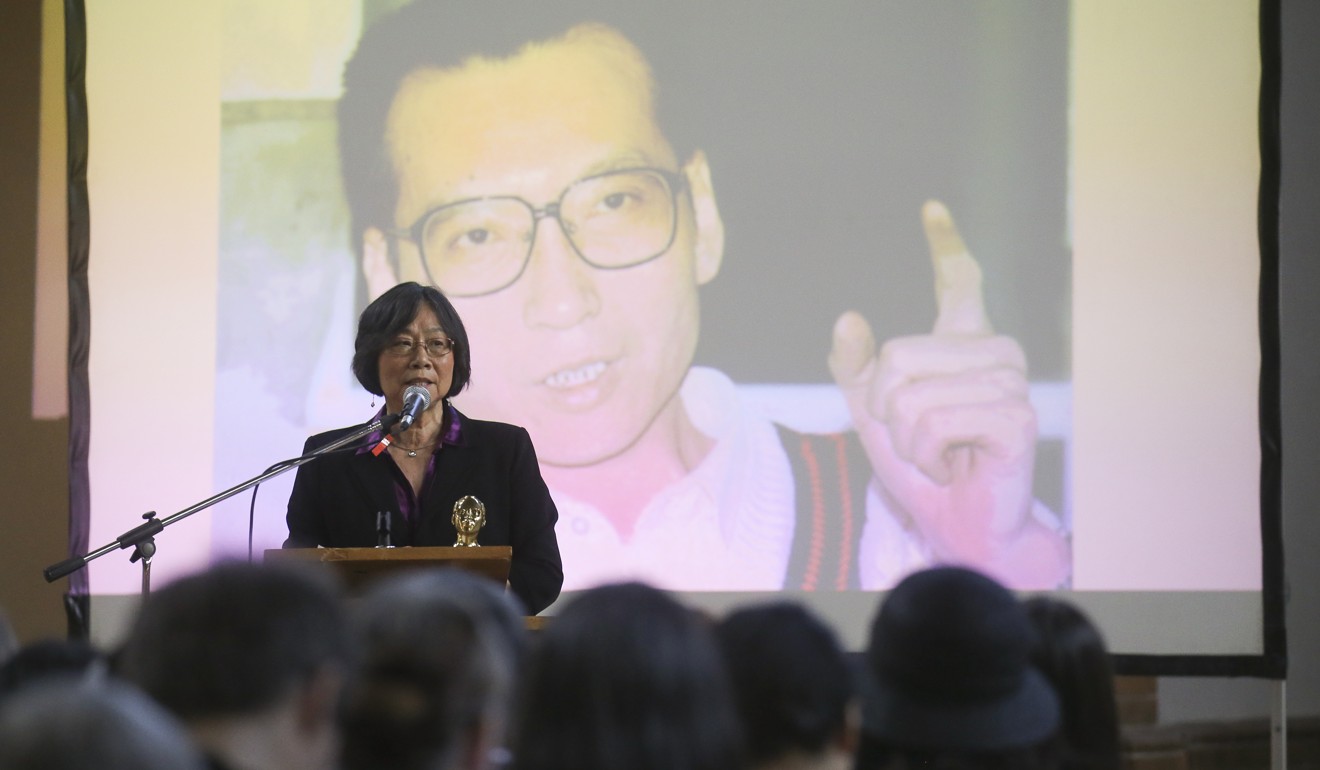
In 2008, Liu Xiaobo was detained and the following year he was sentenced to 11 years’ imprisonment for state subversion after drafting Charter 08, a manifesto calling for sweeping political reforms in China.
His wife was placed under effective house arrest at the end of 2010 when Liu Xiaobo was awarded a Nobel Peace Prize and represented by an empty chair at the ceremony in Oslo.
Liu Xia, a poet, photographer and painter, was kept there for eight years, but was never charged with any offence.
Mimi Lau is reporting from Berlin

